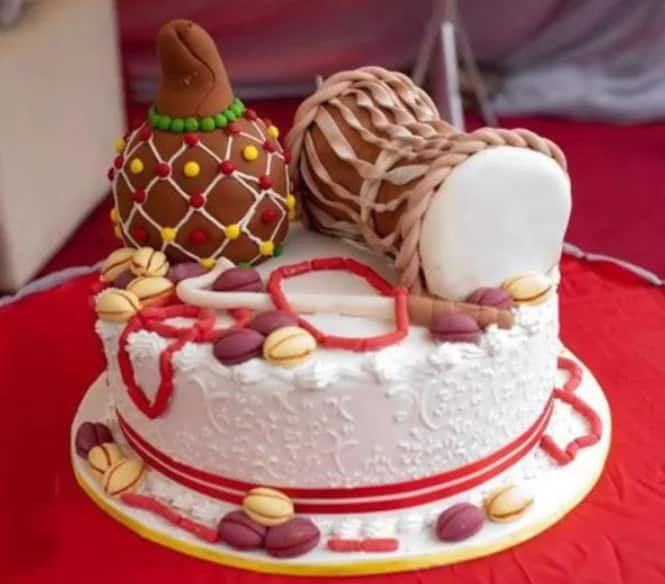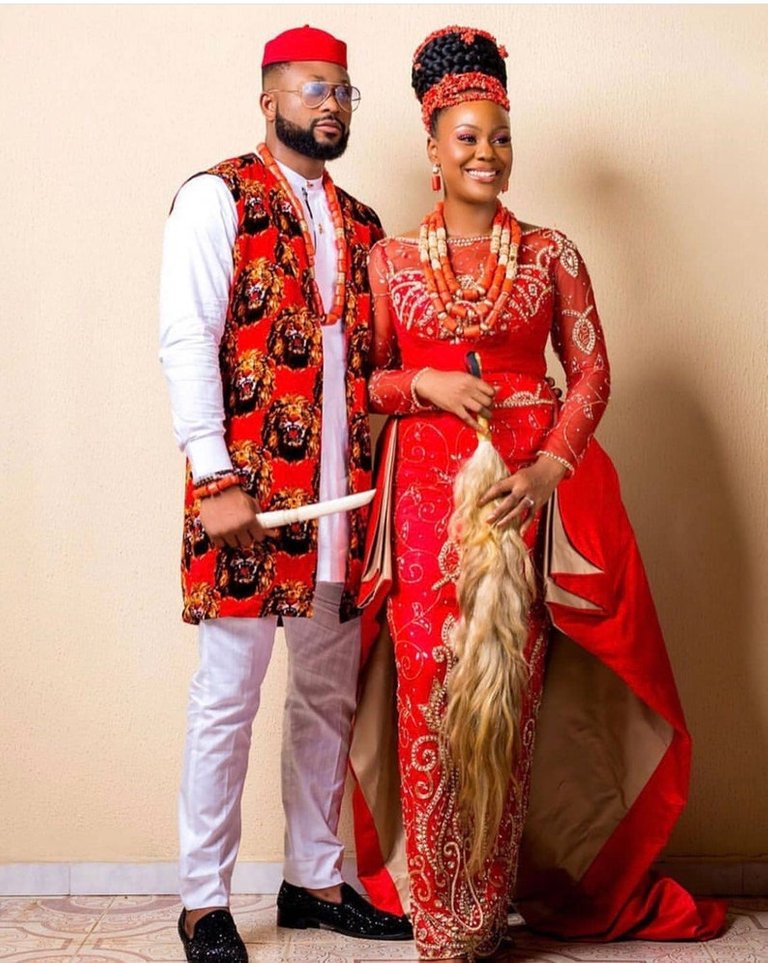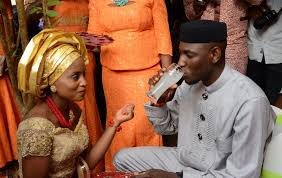The traditional marriage in Igbo land is called Igba nkwu or wine carrying because it involves the bride carrying a cup of palm wine to the groom. In Igbo land, marriage is very important that parents even go on their kneels asking God to bless their children with marriage. The traditional rites attached to the union can not be taken lightly by the families involved. The Igbo traditional marriage are so colorful and are in stages.
Marriage inquiry. It is called iku aka or iju ajuju which means knocking at the door or making inquiry. In this stage, the groom and his family pays a visit to the brides family. During this visit, the family of the groom are to come empty handed, Though some come along with acholic drink and kola nut. The groom's father does the talking but in a situation where he is dead, the eldest man in the family takes his place. The father to the groom introduces himself to the brides family and explain their purpose of visiting. At this point, the parents of the bride calls upon their daughter and ask if she knows the groom and will be interested in marrying him. Her response determines whether they will move ahead or not.
Seeking the consent of the extended families of the bride to be ( umunna).
This is the second stage of visit by the groom's family. Here, the visit is no more to the immediate family of the bride but the extended. Before this stage comes up, the both families must have gone into investigation to know the background and history of the families they are marrying from. The results of the investigation also determines if the marriage will happen or not. If the investigation is successful and yield good results, the date for the next visit will be fixed. At this stage, the groom has to restate his interest before the extended family members of the bride. After which, they will give their consent and also call upon the bride to give her final consent. At this point, date for the bride price and list negotiation will be fixed.
- Ime ego which is the bride price negotiation and payment.
After the success of the second visit, the groom's family proceeds with negotiation and payment of the bride price. This section is very hectic and can destroy the marriage in a situation where the grooms family refused to accept the money involve. Many families tend to be very greedy in this stage while some are considerate. The bride price can be as low as N20, N30, even up to N100 but the items on the list are always much. Some of the items involves- A pickup full of yam
- 25 liter's of palm oil
- Bags of rice
- Bags of salt
- Carton of bathing soaps
- Carton of washing soaps
- Luggages
- Shoes
- Bags
- Wrappers
- Certain amount of money to the men
- Certain amount of money to the women and so on.
The groom's family makes the payment if they are buoyant enough but if not, they go into negotiation to beat down the price. After the payment has been made, date will be fixed for the marriage proper.
- The Igba nkwu known as wine carrying.
This is the last stage to complete the traditional marriage and it is done in the brides family house. It is a very big feast where families, friends and much visitors will be invited. The bride to be dresses in different colorful attire to show case herself, before finally coming out with the same clothes with her husband to be. During the ceremony, the bride father will hand over a glass of palm wine to the bride to search for her husband to be. The bride goes along with the maiden's to find the groom who is hidden in the crowd. When she searches him out, she then offers him the glass of palm wine to drink while she is kneeling. The groom drinking from it means acceptance. At this point, they are officially pronounce husband and wife. They will both dance to their parents to receive blessings from them. The merriment begins with families and friends presenting gifts to the couple. Dance, dance and dance all the way. At the end of the ceremony, the bride parents will offer some precious gifts such as kitchen utensils, bags of clothes, shoes freezer and Many more to their daughter in order to start a new life in her new home. Here comes the end of the ceremony.





